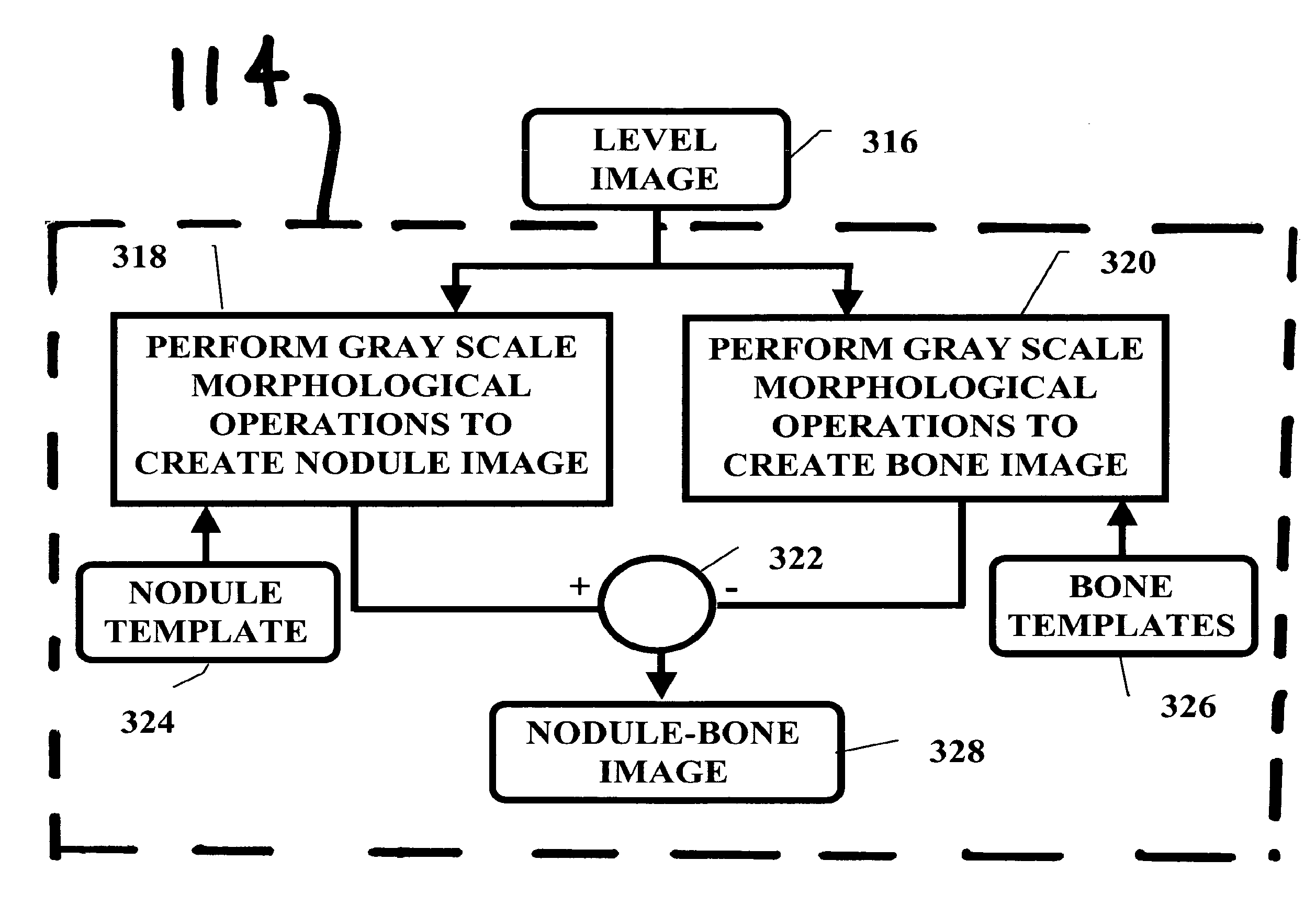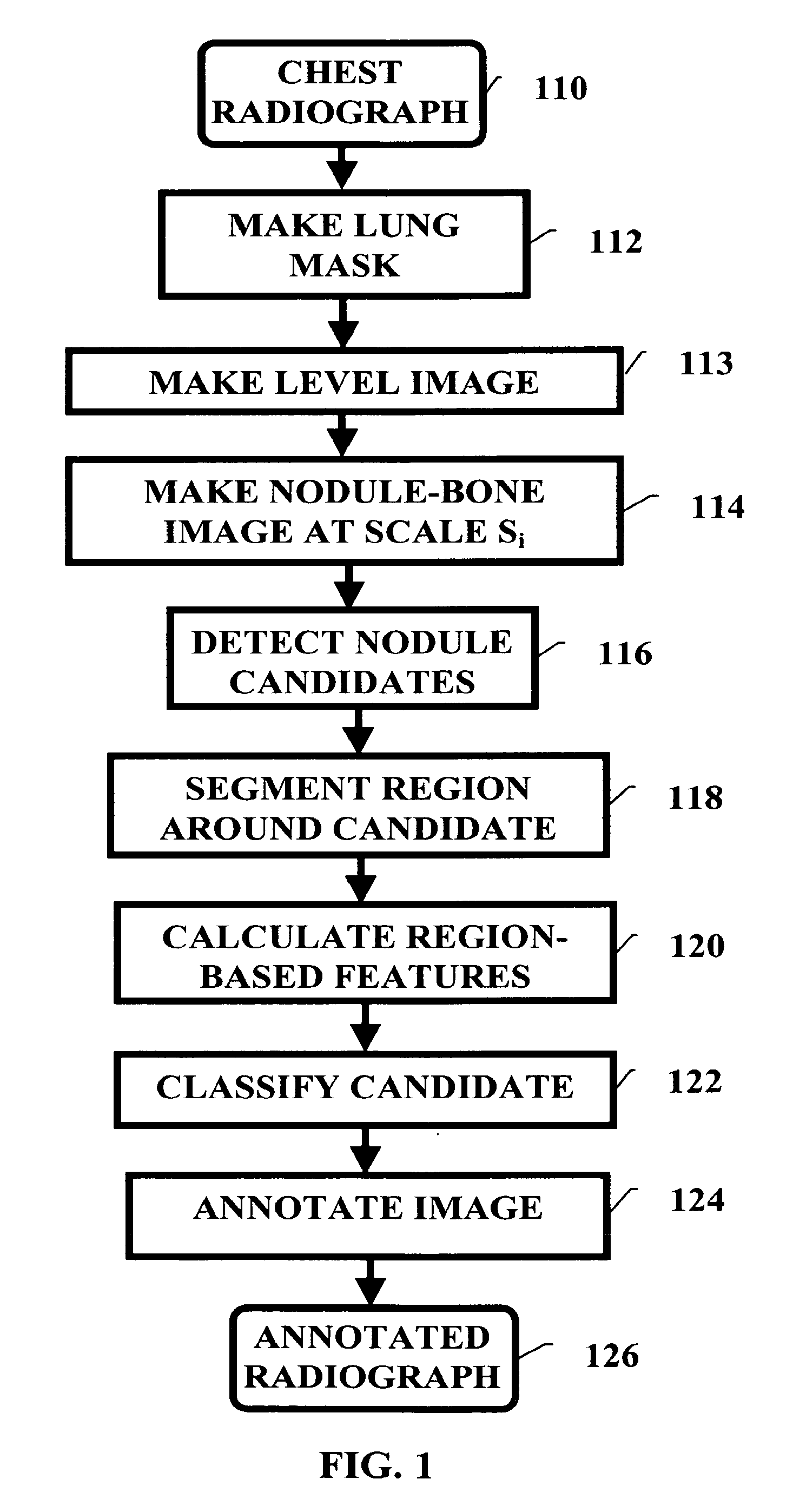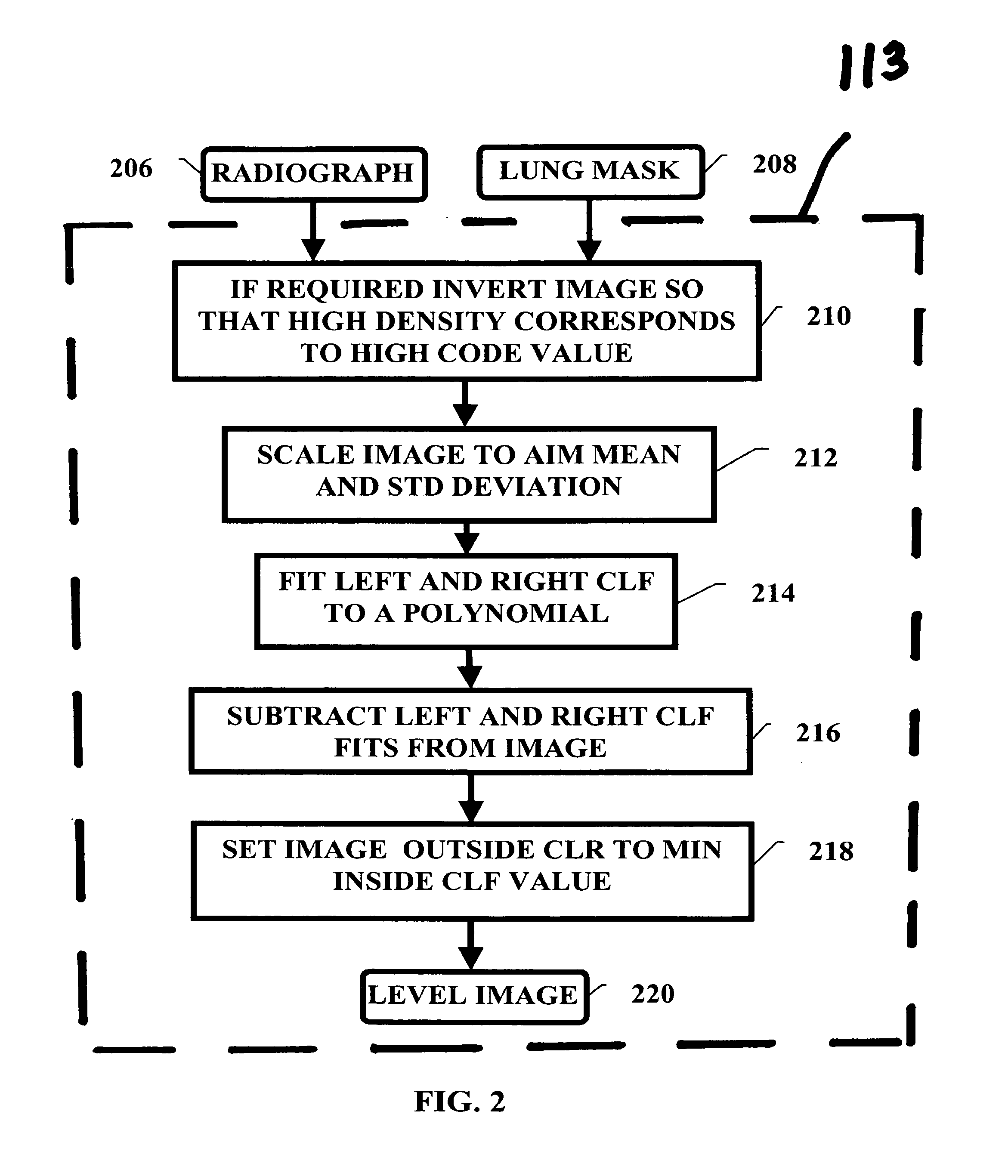Pulmonary nodule detection in a chest radiograph
a chest radiograph and pulmonary nodule technology, applied in the field of computer assisted detection, can solve the problems of reducing the ability to detect nodules near the clear lung field boundary, and affecting the detection accuracy of chest radiographs
- Summary
- Abstract
- Description
- Claims
- Application Information
AI Technical Summary
Benefits of technology
Problems solved by technology
Method used
Image
Examples
Embodiment Construction
[0028]The following is a detailed description of the preferred embodiments of the invention, reference being made to the drawings in which the same reference numerals identify the same elements of structure in each of the several figures.
[0029]FIG. 1 shows a flowchart generally illustrating a method of pulmonary nodule detection in accordance with the present invention.
[0030]A chest radiograph (i.e., a chest image) is an input to a nodule detection system, as shown at step 110. The code value metric of the radiograph may be log exposure at the image detector; P-values as described in Part 14 of the DICOM standard; or any other image representation. If desired, the image can be scaled so that the spacing between pixels corresponds to a distance in the image plane of 0.171 mm.
[0031]In step 112 a lung mask is calculated from the chest radiograph which indicates the clear lung field (CLF) in the image. Generally, the clear lung field is divided into a left and right clear lung field tha...
PUM
 Login to View More
Login to View More Abstract
Description
Claims
Application Information
 Login to View More
Login to View More - R&D
- Intellectual Property
- Life Sciences
- Materials
- Tech Scout
- Unparalleled Data Quality
- Higher Quality Content
- 60% Fewer Hallucinations
Browse by: Latest US Patents, China's latest patents, Technical Efficacy Thesaurus, Application Domain, Technology Topic, Popular Technical Reports.
© 2025 PatSnap. All rights reserved.Legal|Privacy policy|Modern Slavery Act Transparency Statement|Sitemap|About US| Contact US: help@patsnap.com



